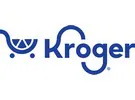Post-merger, Kroger plans a bigger local product presence Post-merger, Kroger plans a bigger local product play. While the Kroger-Albertsons merger represents a potential large-scale change for the grocery industry, the $24.6 billion deal is slated to bring one small change that customers are likely to notice on the shelf: more locally sourced products. Cincinnati-based Kroger Co. said Tuesday that it plans to lift the number of local products in stores by 10%–or about 30 products per store–after the Albertsons acquisition closes, expected in early 2024.
Post-merger, Kroger plans a bigger local product play. While the Kroger-Albertsons merger represents a potential large-scale change for the grocery industry, the $24.6 billion deal is slated to bring one small change that customers are likely to notice on the shelf: more locally sourced products. Cincinnati-based Kroger Co. said Tuesday that it plans to lift the number of local products in stores by 10%–or about 30 products per store–after the Albertsons acquisition closes, expected in early 2024.
Currently, Kroger said, the company brings locally sourced foods and other products into its stores in several ways. First, its supermarkets sell a range of produce from local farmers. That provides benefits in product quality, since by cutting the distance between farms and stores, shoppers get more days of product freshness, the company noted.
Second, many stores also allocate shelf space specifically to local products and highlight the regional connection with special signage, Kroger reported. And finally, farmers and local producers work directly with Kroger to determine the best ways to get the word out about their products to customers.
Source: Winsight Grocery Business
Loblaw adds Oracle Cloud infrastructure to modernize its IT infrastructure Loblaw Companies Limited, Canada food retailer, has migrated its SAP systems to Oracle Cloud Infrastructure (OCI), modernizing its IT infrastructure to efficiently scale operations. Loblaw now runs one of the world's largest single-instance SAP databases—more than 180TB—to manage nearly every piece of its business from retail price tags to financials. By moving its on-premises database footprint to OCI, Loblaw said it has seen an up to 35% improvement in performance.
Loblaw Companies Limited, Canada food retailer, has migrated its SAP systems to Oracle Cloud Infrastructure (OCI), modernizing its IT infrastructure to efficiently scale operations. Loblaw now runs one of the world's largest single-instance SAP databases—more than 180TB—to manage nearly every piece of its business from retail price tags to financials. By moving its on-premises database footprint to OCI, Loblaw said it has seen an up to 35% improvement in performance.
"It was extremely important for us to minimize risk during the move to the cloud. The SAP database had to operate correctly after the migration to safeguard the success of our businesses," said David Markwell, chief technology and analytics officer, Loblaw. "OCI had the proven experience of running databases at this scale in the cloud which made them the right choice for this work. The real validation came when our post-migration tests showed a 35 percent increase in performance in key SAP transactions. The results speak for themselves."
Source: Supermarket News
Lidl launches ‘grocers that give back’ campaign for metro Atlanta high schools
Lidl will be launching a fundraising campaign from Sept. 13 to Nov. 7 to support athletic and extracurricular programs at metro Atlanta high schools. Through the “Groceries That Give Back” campaign, Lidl will donate $1,000 to $50,000 to participating high schools, based on each dollar customers spend using the grocer’s myLidl rewards app. Lidl is committing up to $3 million to the initiative.
More than 60 Atlanta high schools signed up to participate in the fundraising drive, which includes high schools in Gwinnett, Dekalb, Fulton, Cobb, Clayton, Cherokee School Districts, Marietta City Schools, and Atlanta Independent Schools System. To view a list of the participating schools, visit https://hallo.lidl.com/give-back.
Source: Atlanta Voice
ShopRite returns to full-service checkout with cashiers
The move apparently came in response to customer feedback. ShopRite sent mailers over the weekend, saying "You asked. We listened." "With labor shortages beginning to ease now, we are adding back full-service lanes and offering a more hybrid self-checkout/full-service experience for customers," spokesperson Karen O'Shea wrote in a statement. "We are always evolving, adapting and listening to our customers so that we can provide the best possible shopping experience."
At the end of 2021, Delaware's ShopRite stores began replacing traditional checkout lines with long self-service checkout stations. They looked similar to the regular lines, but had a computer on the same side as customers entered instead of an opposing cashier station. Customers were tasked with scanning their own items and navigating a touch screen to pay.
Source: Delaware Online
UK: Ocado price cuts entice customers back to online grocery shopping as Q3 sales grow, says GlobalData Following today’s release of Ocado’s figures for the 19 weeks ending 27th August 2023; Joe Dawson, retail analyst at GlobalData, a leading data and analytics company, offers his view: “Ocado’s Q3 FY2022/23 results offer a positive end to what has been a troubling year for the online grocer, as successive price cuts have helped it to increase revenue within its joint venture with Marks & Spencer. After showing a return to profitability in its half-year results, the focus for CEO Hannah Gibson was on “perfect execution” – ensuring deliveries were on time and in full and enticing more consumers with value-led propositions.
Following today’s release of Ocado’s figures for the 19 weeks ending 27th August 2023; Joe Dawson, retail analyst at GlobalData, a leading data and analytics company, offers his view: “Ocado’s Q3 FY2022/23 results offer a positive end to what has been a troubling year for the online grocer, as successive price cuts have helped it to increase revenue within its joint venture with Marks & Spencer. After showing a return to profitability in its half-year results, the focus for CEO Hannah Gibson was on “perfect execution” – ensuring deliveries were on time and in full and enticing more consumers with value-led propositions.
These efforts have paid off, with a 1.5% increase in active customers to 961,000 and a growth of 6.6% in the number of mature customers (customers that have made at least five shops with Ocado) over the period. Price cuts successfully navigated the boundary between increasing volumes and hurting turnover gains, as the average basket value increased 4.2% to £120.7, and average orders per week grew 1.9% to 381,000. However, the slight drop in items per basket from 45 to 44 might suggest consumer budgets still haven’t recovered and some shoppers are also shopping elsewhere a bit more.
Source: Retail Times
Croatia: Consumers flock to foreign retail chains, analysis shows
In a recent financial analysis of the food and beverage retail sector in Croatia, it has been revealed that Croatian consumers are increasingly turning to originally foreign retail chains. The analysis was presented at the "Economic Coffee" conference organized by the Croatian Employers' Association.
The study, conducted by Andrej Grubišić from the firm Grubišić&Partneri, delved into the operations of the 30 largest retail chains in the food and beverage segment over the past six years. One of the standout findings of the analysis was the significant growth in market share for originally foreign chains such as Lidl, Spar, Kaufland, and Eurospin. Their combined market share has increased by three percentage points compared to six years ago. In contrast, domestic chains that were subsequently acquired have seen a slightly smaller market share, while domestic regional chains recorded a market share nearly two percentage points lower.
Source: The Dubrovnik Times
Spain: 61% increase in Spaniards embracing own-brand supermarket products There has been a massive rise in popularity of own-brand products in Spain’s shopping baskets. Own brand products, also known as private-label products, are increasingly finding favour among Spanish consumers, with this trend expected to continue in the coming years, according to a study by Aldi. The report sheds light on the evolving preferences of shoppers when it comes to private-label items.
There has been a massive rise in popularity of own-brand products in Spain’s shopping baskets. Own brand products, also known as private-label products, are increasingly finding favour among Spanish consumers, with this trend expected to continue in the coming years, according to a study by Aldi. The report sheds light on the evolving preferences of shoppers when it comes to private-label items.
Since 2020, 61 per cent of consumers have reported an increase in their consumption of supermarket own-brand products. In the past year, the number of Spaniards who now claim that over 75 per cent of their shopping basket consists of own-brand products has risen to 26 per cent (compared to 19 per cent in 2022). When consumers find an own-brand product they like, 8 out of 10 report discontinuing the purchase of other brands.
Furthermore, 86 per cent indicate that a positive experience with one own-brand product encourages them to try other own-brand items from the same supermarket, while 79 per cent are inclined to recommend the brand to friends and family.
Source: Euro Weekly News
France and Germany want to ban shrinkflation
Both the French and German government want to ban shrinkflation. They call manufacturers reducing the content of products to camouflage price increases – at the very least – “misleading”.
The German Minister for Consumer Protection, Steffi Lemke, wants to act against hidden price increases in supermarkets with a new law that aims to ban both packaging of the same size with reduced content, as well as larger packaging with the same content. “This is where consumers are being misled“, the minister told Handelsblatt, adding that she also considers the practice unacceptable from the point of view of waste prevention.
In France, it is Economy Minister Bruno Le Maire who wants to impose a ban, immediately finding support from Prime Minister Elisabeth Borne. From November, they demand that producers always explicitly state changes in content on the label. Reactions are not all equally thrilled: especially liberal sources say that the measure is unnecessary, while the producers state that shrinkflation is actually a very limited problem. Jean-Philippe André, head of the French food federation ANIA, earlier stated that it is barely about 0.2 % of supplied goods.
Source: Retail Detail
Australia: Aldi annihilates Coles, Woolies when it comes to fruit and veg One supermarket has officially been declared top dog when it comes to this grocery item, scoring five stars in four categories to take out the title.
One supermarket has officially been declared top dog when it comes to this grocery item, scoring five stars in four categories to take out the title.
An annual shopper's report has revealed how Australia’s soaring cost of living has forced Australians to change what they buy at the checkout. One supermarket chain has been declared the indisputable winner when it comes to their fruit and vegetables range. For the third year in a row, Canstar Blue awarded Aldi the Most Satisfied Customers – Supermarket Fruits and Vegetables award, with the supermarket scoring five stars in four out of five categories.
The categories included overall satisfaction, value for money, freshness, presentation and variety, which was where Aldi scored four stars.
Source: News.com.au
Singapore: FairPrice supermarket is the favourite for almost 50% of answers.sg poll respondents A poll by Answers.sg found that out of 2,000 respondents, around half stated that FairPrice is their favourite supermarket. Those who spoke to MS News listed convenience as their primary factor, as there are over 100 FairPrice supermarkets in Singapore. Others also enjoy the variety of products that outlets such as FairPrice Xtra and Finest have to offer. A significant minority — around 35% — voted Sheng Siong as their favourite, mainly because there are frequent discounts, which they feel FairPrice sometimes lacks.
A poll by Answers.sg found that out of 2,000 respondents, around half stated that FairPrice is their favourite supermarket. Those who spoke to MS News listed convenience as their primary factor, as there are over 100 FairPrice supermarkets in Singapore. Others also enjoy the variety of products that outlets such as FairPrice Xtra and Finest have to offer. A significant minority — around 35% — voted Sheng Siong as their favourite, mainly because there are frequent discounts, which they feel FairPrice sometimes lacks.
Source: MustShareNews










